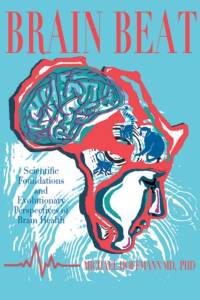Om Brain Beat
Brain Beat: A Scientific and Evolutionary Perspective of Brain Health examines the origins of the pillars of brain health, expounding the current scientific basis for recommending physical exercise, cognitive exercises, sleep hygiene, socialization and brain-foods. However in addition to the "how" question, the more important "why" question is addressed from a neuro-archeological and evolutionary standpoint. The clinical and laboratory brain sciences are replete with ever increasing numbers of publications about brain plasticity and the powerful aspects of preventative medicine. Once dismissed as non-existent, we now know that brain plasticity and "brain building" occurs on a daily basis. Why did physical exercise evolve to produce new brain cells and connections and how and why did we become "born runners" and become "wired to run"? Why an important function of sleep is the pruning the brain''s connections made during the day and why are diverse diets associated with good health in differing traditional human societies? Why is socialization protective against dementia and cardiovascular disease? New scientific, evolutionary and anthropological research is presented on how these processes were ingrained into our brain circuitry and linked to appropriate reward mechanisms, some of which have resulted in "mismatch diseases" today. Disparate disciplines such as geology, climatology and astrophysics give insights as to how our body, brain and mind were forged by "fire and ice". With a better understanding of how we evolved, comes improved adherence and compliance to healthy living proclivities."In this clearly written book Dr. Michael Hoffman, an outstanding behavioral neurologist, describes the evolution of the human brain. This knowledge of evolution allows the reader to better understand the brain''s function, as well as the means by which we older people can help preserve this penultimate gift of nature." Kenneth M. Heilman MD, FAANThe James E. Rooks Jr. Distinguished ProfessorDepartment of NeurologyUniversity of Florida College of MedicineGainesville, FL. 32610"This intriguing book by Dr. Michael Hoffmann is full of interesting points about the connections across our brain, behavior and the world we inhabit.  He combines evolutionary concepts with history, philosophy, science and medicine.  Everything is connected and his innovative concepts can help us explain the intersection between environment and our brain, and motivate the reader to take better control of their own brain health."Ralph L. Sacco MD MS FAHA FAANProfessor and Olemberg Chair of NeurologyExecutive Director McKnight Brain InstituteChief of Neurology Jackson Memorial HospitalMiller School of MedicineUniversity of Miami
Visa mer

